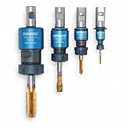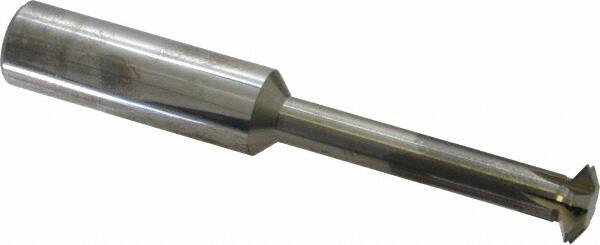So, there are various ways this is done, including what you describe, which uses a clutch to drive a tap for internal threading. Generally they are pricey, by hobbyist standards. $500-$1000 range likely.

The method I was suggesting uses the tool image I linked and that tool is sized for a certain pitch. The tool is effectively a 60-deg trapezoid, with several reliefs that are the cutting edges. When the rotating tool is fed along a right or left hand helix, matching the pitch, it cuts the threads. This might be done in multiple passes, each moving towards the final radius, depending on the job.
What I like about this method in concept is that it makes it easier to ensure that the threads are orthogonal to the milled/drilled hole, and thus the face. I'm horrible at hand drilling or threading or anything requiring a steady hand or requirement for a 90 or 45 degree angle.
The reason the tool is tied to pitch is that the calculation for the trapezoidal thread requires Dmin, Dmaj, P, and H, and 60-deg., where P is pitch, and H, which equals SQRT(3/4) x P, about 0.866 x P. This means that the radial cut equals 3/4 x H = 3/4 x 0.866 x P, which I believe is why the course/fine pitch values increase as the D decreases.




